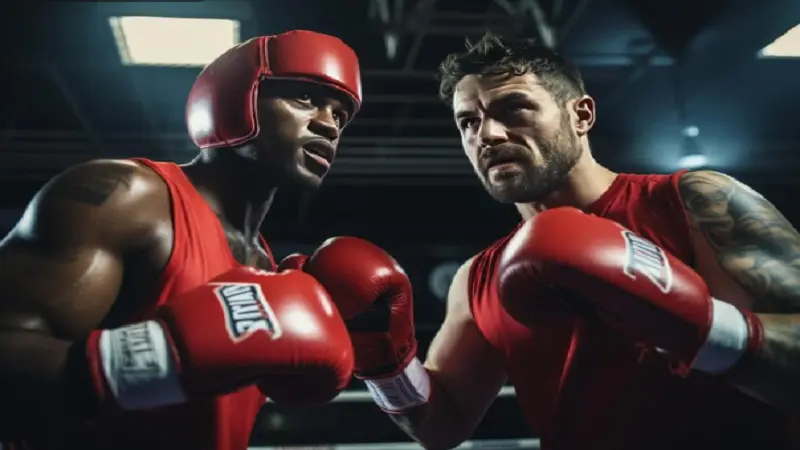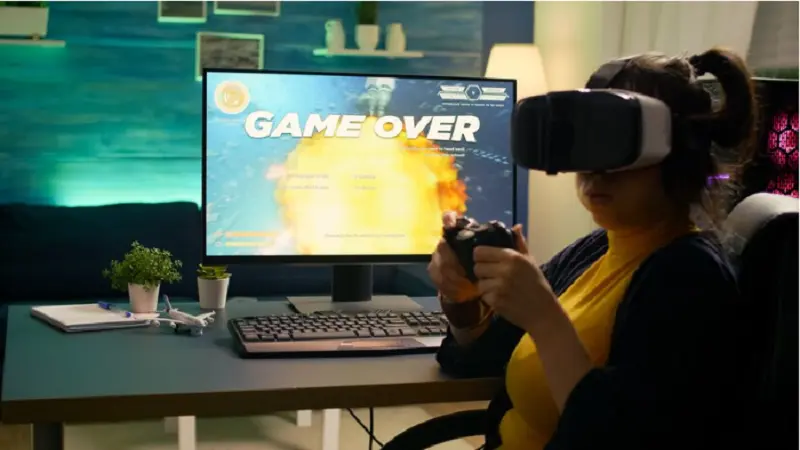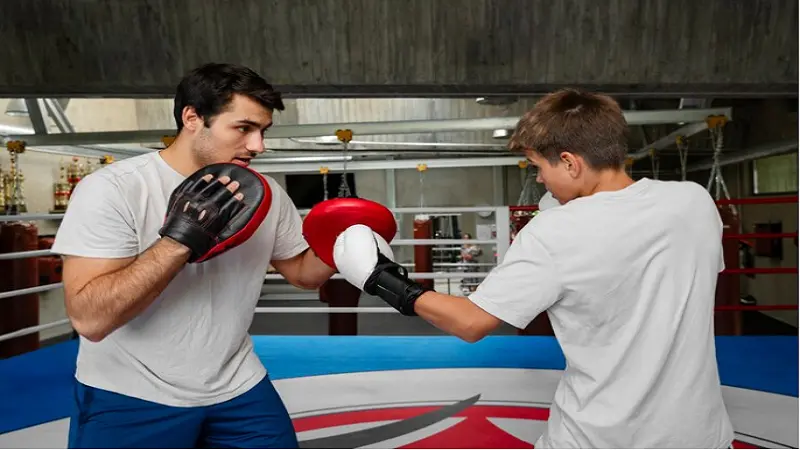Scores SFFAREBoxing has long captivated audiences with its blend of raw power, strategic finesse, and intense competition. Within this realm, the concept of scoring plays a crucial role, in shaping the outcomes of matches and the careers of fighters. In this article, we delve into the fascinating world of boxing scoring, focusing on the unique system employed by the SFFARE (Scoring Federation for Fair and Accurate Recognition in Boxing). We’ll explore how this system works, its impact on the sport, and how it differs from traditional scoring methods, offering fans and enthusiasts a deeper understanding of the intricate dynamics at play in every match.
The Evolution of Boxing Scoring
To appreciate the significance of the Scores SFFAREBoxing system, it’s essential to understand the historical context of boxing scoring. Traditional scoring systems have evolved over the years, often leading to controversies and debates over the fairness and accuracy of decisions. In many cases, judges were the sole arbiters of a fight’s outcome, leading to subjective interpretations and inconsistent results. This has often left fans, fighters, and promoters dissatisfied, with calls for more transparent and standardized methods.
Traditional Scoring Systems
The most common traditional scoring method is the 10-point must system, which originated in professional boxing. Under this system, judges award the winner of each round 10 points and the loser 9 or fewer, depending on the level of dominance displayed. If a round is even, both fighters receive 10 points. While this system provides a basic framework for scoring, it is often criticized for its lack of precision in evaluating a fighter’s performance, particularly in closely contested rounds.
Other traditional methods include round-based scoring and aggregate scoring. Round-based scoring awards points based on the number of rounds won by each fighter, while aggregate scoring sums the total number of punches landed by each fighter over the entire match. These methods also have their limitations, often failing to capture the full range of skills and tactics employed by fighters.
The Birth of SFFARE
The Scoring Federation for Fair and Accurate Recognition in Boxing (SFFARE) was established to address the shortcomings of traditional scoring systems and promote fairness and transparency in boxing matches. Founded by a group of boxing enthusiasts, trainers, and former fighters, Scores SFFAREBoxing aims to revolutionize the way boxing matches are scored, ensuring that the true essence of the sport is captured and celebrated.
Key Principles of SFFARE Scoring
Scores SFFAREBoxing scoring is built on several key principles that distinguish it from traditional methods. These principles prioritize fairness, accuracy, and the comprehensive assessment of a fighter’s performance. Here are the core tenets of the SFFARE system:
- Objective Evaluation: SFFARE scoring employs a panel of judges who are trained to assess matches using objective criteria. This reduces the influence of personal biases and ensures a more consistent evaluation of each fighter’s performance.
- Holistic Assessment: Unlike traditional systems that focus solely on the number of punches landed, SFFARE considers a broader range of factors, including effective aggression, ring generalship, defense, and clean punching. This approach acknowledges the multifaceted nature of boxing and rewards fighters for their overall skills and strategy.
- Real-time Scoring: SFFARE utilizes real-time scoring technology, allowing judges to input scores electronically as the match progresses. This eliminates the potential for post-fight score adjustments and provides fans with instant updates on the scoring dynamics.
- Transparency: SFFARE places a strong emphasis on transparency, ensuring that scores are accessible to both fighters and fans. Scorecards are publicly displayed, and judges are required to provide explanations for their decisions in contentious rounds.
- Penalty System: To deter unsportsmanlike behavior, SFFARE incorporates a penalty system that deducts points for infractions such as excessive holding, low blows, and intentional fouls. This encourages fighters to adhere to the rules and maintain a clean, competitive match.
SFFARE Scoring in Action
To illustrate how Scores SFFAREBoxing works in practice, let’s consider a hypothetical match between two skilled boxers, Alex “The Hurricane” Garcia and Jake “The Technician” Ramirez. The match is set for 12 rounds, with each round lasting three minutes.
Round 1: A Strategic Start
As the match begins, both fighters take a measured approach, studying each other’s movements and probing for weaknesses. Garcia employs his signature aggressive style, launching a series of powerful jabs and hooks. Ramirez, known for his defensive prowess, skillfully evades many of Garcia’s attacks while countering with precision.
SFFARE Scorecard (Round 1):
- Effective Aggression: Garcia 8, Ramirez 7
- Ring Generalship: Ramirez 8, Garcia 7
- Defense: Ramirez 9, Garcia 7
- Clean Punching: Ramirez 8, Garcia 7
Round 2: Turning Up the Heat
Garcia, determined to assert his dominance, increases his aggression in the second round, launching a flurry of punches that keep Ramirez on the defensive. Despite Ramirez’s best efforts to counter, Garcia’s relentless assault lands several clean shots.
SFFARE Scorecard (Round 2):
- Effective Aggression: Garcia 9, Ramirez 7
- Ring Generalship: Garcia 8, Ramirez 7
- Defense: Ramirez 8, Garcia 7
- Clean Punching: Garcia 9, Ramirez 7
Round 3: Tactical Adjustments
Recognizing the need to regain control, Ramirez makes tactical adjustments in the third round. He uses his footwork to create distance and strategically selects his moments to strike. Garcia continues to press forward but struggles to land clean punches against Ramirez’s evasive maneuvers.
SFFARE Scorecard (Round 3):
- Effective Aggression: Garcia 7, Ramirez 8
- Ring Generalship: Ramirez 9, Garcia 7
- Defense: Ramirez 9, Garcia 7
- Clean Punching: Ramirez 8, Garcia 7
The Impact of SFFARE Scoring
The introduction of the Scores SFFAREBoxing system has had a profound impact on the sport of boxing, influencing both fighters and fans. Here are some of the key ways in which SFFARE scoring has transformed the boxing landscape:
1. Enhanced Fairness and Accuracy
SFFARE’s objective and holistic approach to scoring has significantly improved the fairness and accuracy of match outcomes. Fighters are evaluated based on a comprehensive set of criteria, ensuring that their skills and strategy are appropriately recognized. This has led to more consistent and credible results, reducing controversies and disputes over scoring decisions.
2. Promoting Sportsmanship
The penalty system employed by SFFARE discourages unsportsmanlike behavior and encourages fighters to adhere to the rules. By imposing point deductions for infractions, SFFARE ensures that matches are conducted in a spirit of fair play, enhancing the integrity of the sport.
3. Engaging Fans
The transparency and real-time nature of SFFARE scoring have made boxing more engaging for fans. With scorecards displayed during matches and judges providing explanations for their decisions, fans gain a deeper understanding of the scoring process. This transparency fosters trust in the system and enhances the overall viewing experience.
4. Encouraging Skill Development
Fighters competing under the SFFARE system are incentivized to develop a well-rounded skill set. The emphasis on factors such as ring generalship, defense, and clean punching encourages fighters to hone their technical abilities and strategic acumen. This has led to a higher level of competition and more dynamic, entertaining matches.
Challenges and Future Directions
While the SFFARE scoring system has brought about positive changes in boxing, it is not without its challenges. Implementing and maintaining such a comprehensive scoring system requires significant resources, including technology, training, and oversight. Ensuring consistency among judges and addressing potential biases remain ongoing challenges that require continuous attention.
Looking to the future, Scores SFFAREBoxing aims to expand its reach and influence within the boxing community. By collaborating with boxing organizations, trainers, and fighters, SFFARE seeks to further refine its scoring criteria and promote its adoption at various levels of competition. Additionally, advancements in technology, such as artificial intelligence and data analytics, offer opportunities to enhance the accuracy and efficiency of the scoring process.
Conclusion
The Scores SFFAREBoxing system represents a significant evolution in the world of boxing, offering a fairer, more transparent, and comprehensive approach to evaluating matches. By prioritizing objective criteria, promoting sportsmanship, and engaging fans, SFFARE has elevated the sport to new heights, ensuring that the true essence of boxing is celebrated and preserved. As the boxing community continues to embrace innovation and progress, SFFARE stands as a beacon of integrity and excellence in the art of scoring.













